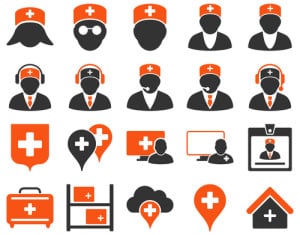
Using the cloud for medical records and research can improve healthcare administration as well as the doctor-patient relationship.
Whether you’re a doctor, nurse, hospital administrator, or work in any aspect of health services, there’s no doubt you have heard a great deal in the past few years about using cloud computing for healthcare. And understandably so – the cloud is changing the way health organizations do business and clinicians interact with and serve their patients.
When considering a move to use cloud computing, healthcare providers should have a clear understanding of the unique benefits associated with cloud technologies, so as to set realistic expectations with their cloud provider, their organization, and their patients.
Everyone who knows about cloud services is aware of the cost savings with remote storing and processing. In this post, we’ll highlight five other benefits of cloud for healthcare that are crucial to ensuring your organization succeeds and your patients receive the care they need.
1. Patient collaboration:
The cloud has made working with your patients so much easier. Since the cloud makes records available to doctors and nurses anytime from anywhere, you can access a patient’s medical history — for example Health Information Exchange and Electronic Medical Records (EHRs) from a handheld tablet. This allows you to make more informed decisions about their diagnosis and treatments. The cloud has also opened to door to telehealth – a means of enhancing healthcare with mobile technologies. With this method of patient collaboration, doctors can perform consultations, stage video-conferences, and initiate home monitoring services – all remotely and through the cloud.
2. Improved access:
As a doctor or nurse, you need quick access to your patients’ information. By storing this data on the cloud, it is readily available to you and can be easily pulled up no matter where you are. In other words, cloud computing facilitates the access to and sharing of EHRs among authorized specialists and hospitals in varying geographic areas; the information accessed is very timely, and therefore potentially life-saving.
3. Storage capabilities:
EMRs and EHRs are an integral part in the day-to-day tasks of doctors and nurses. It’s no surprise that storing these records is one of the main reasons for adopting cloud services. Cloud solutions make it much easier to archive and retrieve patient records and images for use. This means you don’t have to pay costs associated with storing and maintaining this data locally.
4. Secure services:
With a HIPAA-compliant cloud, your service provider is responsible for maintaining the highest degree of security for your solution. This means keeping data encrypted so hackers cannot access it, backing up records stored so they are easily recoverable in case anything happens, and ensuring access to data is permission based. Healthcare agencies can feel secure knowing that security experts are handling their data; their medical records, insurance information, and billing materials are kept private and secure.
5. Relevant research:
All this data being tracked in the cloud can be collected for medical research on varying levels – from reviewing trends to providing personalized patient care. By minimizing in-house storage needs, the cloud can offer you seemingly endless amounts of data to be referenced for medical research.






























